Some strategies to strengthen the nation, by Hassan Gimba
The Arbiter
This is a continuation of the repeat of last week, written a week after it–on March 17, 2024. The only change is that of the headline.
Last week, we read how the signs are not looking good for a nation like ours that wants to be reckoned with internationally. We concluded by asking the federal government to look at ways to reduce the cost of governance and the unimaginable take-home pay of political leaders and redirect the excess towards production. And we emphasised that we must become a productive nation that eats, drives and wears what it produces.
We also urged anyone genuinely interested in the welfare of workers, and of Nigerians, to proffer solutions that would boost our economy and strengthen our currency and not suggestions that would bastardise our economy and drive the naira’s value further down. And that salary increase at the moment will not help the economy.
To ensure the galvanization of production and improvement of locally generated revenue, the federal and state governments must urgently revive the moribund industries scattered across the landscape. This will not only create direct and indirect jobs for millions but also stimulate the production of local materials by attracting more buyers, consequently leading to increased employment.
The government, and here I mean the federal and state governments, must always be truthful and fair to the citizens. They must also make their agencies work. The government must let the government function. In almost all cases, it is the government that makes the government fail because the actors do everything from a prism of personal gain. Service has taken the backseat. Then there is the Nigerian syndrome of “Do you know who I am?”
I will give you an example. Just recently there was a furore that the Presidential Villa owed the Abuja Electricity Distribution Company ₦923 million, the Nigerian Police owed ₦1.4 billion and the office of the Central Bank Governor, ₦1.6 billion. Put together, the federal government and its agencies were indebted to the tune of ₦47billion. And, you see, God saves any AEDC official who tries to disconnect power from Villa, Police Headquarters or CBN.
But every year there is money for electricity bills in the government and its agencies’ budgetary allocations, so why should the bills accumulate? If the power company has not been paid, what happened to the money allocated in the budget for that purpose? Is the government here not strangulating the electricity company with its hand, yet every day we cry of epileptic power?
It is commendable that President Bola Ahmed Tinubu ordered the immediate payment of the Villa bill; however, is it enough without instituting an investigation into the failure of the Villa bureaucracy to pay its electricity bills despite budgetary provisions? This is what would make Nigerians sit up and take note. Otherwise, it is just the old system: sweep the sleaze under the carpet and let sleeping dogs lie.
Perhaps, because citizens, rightly or wrongly, think those in authority would naturally dip their hands into the treasury, and also scramble (as the Europeans scrambled for Africa) over state resources, that is why some of them scramble over any resources close to them. Maybe this is why any warehouse they see, any trailer load of food that enters their ‘trap’, they pounce on it. And do you blame them when they refuse to pay NEPA bills?
Every day something new is trending. Yesterday was budget padding; today it is “each senator got ₦500million.” Who knows what tomorrow will bring? The citizens must feel that their interests are also part of the mix. That sense of belonging would automatically bring down the crime rate substantially.
It is important to give governance the seriousness it deserves. When you go through our budgets and the imputed figures, like templates across the MDAs, one would be forgiven to think that anointed groups are treating governance as a joke and sharing the national cake.
Justice and fairness must permeate the land. No nation can rid itself of crime if its leadership does not go out of its way to give the people a sense of belonging and fairness, and its judiciary fails to offer justice and protection to the oppressed.
Therefore, leaders at the centre must be exemplary, which will make those in charge of other tiers of government follow suit. It is not enough for a leader to be mouthing platitudes while his actions go contrariwise. This is what is meant by “Change must begin with the leader” where the Brazilian lyricist and author of The Alchemist, Paulo Coelho, said, “The world is changed by your example, not by your opinion.”
I will never get tired of hammering it–to all who care to listen–what Sheikh Usman Dan Fodiyo wrote in his book, Bayan Wujub al-Hijrah alal ibad: that “the death of a thousand good men is not as tragic as having an unfit man in a position of national leadership,” and that “a kingdom (nation) can endure with unbelief, but it cannot endure with injustice.”
To ensure that justice is served, we must strengthen our legal and judicial systems. We need to reform our laws and improve the capacity and independence of our judges and lawyers. Strengthening our legal and judicial systems through law reform and enhancing the capacity and independence of our judges and lawyers will earn the system more respect and restore the trust of the people that has been heavily eroded.
These, and more along this line, are what our leaders must do to make our country the great nation it is meant to be. Every leader will be proud that under his watch we became a united people and forged ahead to become an industrialised nation.
To stitch the “merely geographical expression” that some think is what we currently have, therefore, is a task that must involve all of us. We do not have any other country to call ours. And we cannot afford to see the nation put together by God through the British rendered asunder.
Hassan Gimba is the Publisher and Editor-in-Chief of Neptune Prime.
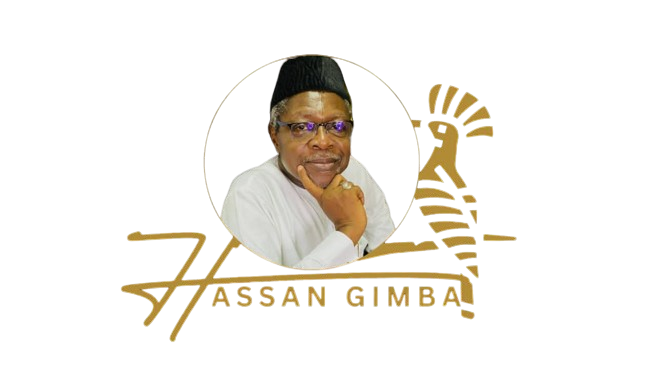
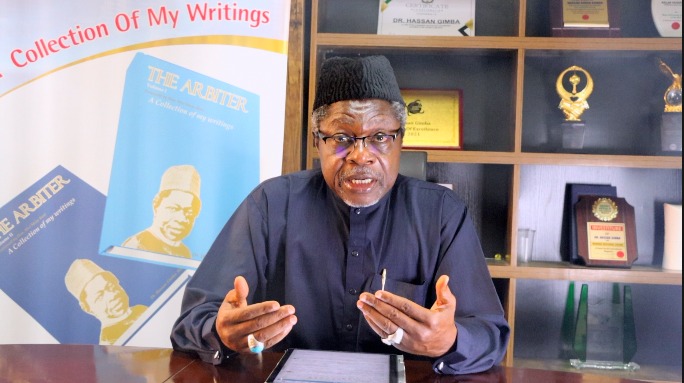
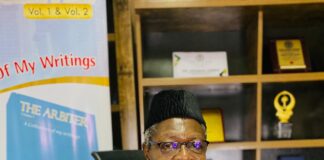
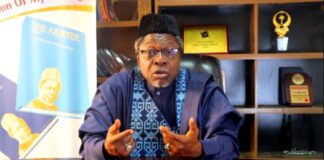
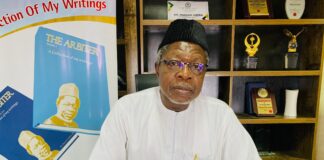

The article titled “Some strategies to strengthen the nation” is a wake-up call on the leaders and an eyeopener to the led, for each to be abreast with the reality of the nation and make a resolve for a prosperous nation. It is not a magic that our contemporary developing countries are ahead of us, it was born out of deliberate actions that came with self denials and sacrifices. Lip service no longer work, action does. Some people can be deceived to believe what is not true at a time, but not all.
It is a fact that production is what builds an economy not tax. It’s disheartening that attention of the leaders is far away from this reality. Instead of investing in reviving our defunct industries where they once existed and establish new ones, attention is always on building bridges that are characterized with massive corruption.
An embattled former governor that now craves for sympathy, while in office, had the mind to sought for foreign loans of huge sums not for industrialation drive, but for demolition and rebuilding flyover bridges and internal roads which, if planned sincerely, the IGR and monthly subventions could conveniently handle based on priority. It’s possible that the resources were mismanaged which only investigation can uncover, now he’s running helter skelter to see that nothing is heard about it.
This and his likes are dangerous to the prosperity of a nation like ours which the populace should be wary of. It’s a fact that the journey to nation building cannot be completed in a day. Also, it is understood that it is a collective responsibility that requires all hands on deck. However, competent personalities, elected and appointed should be at helm of affairs for us to be on the right track.
Nigerians are yet to feel the impact of the change of administration is CBN. The economy is still in shambles, if not worse than what it used to be. One does not need to a a Professor of Economics to fathom the negative effects of high interest rate on the economy. When developing countries are advocating for single-digit interst rate, some going fully for interest-free loans, ours was recently jacked up to 26.75%. Which business will one venture into with N100,000, break even, pay interest of N26,750 and make a profit?
It’s high time we borrow genuine commitment and sincerity of intent to build the only country we have, for ourselves and the generations that come after us.
Dr. Gimba is one of the few columnists that readers see the love of Nigeria in his articles, always writing on topics that people of conscience feel touched. May Allah give him long life, good health and the courage to continue the good work. Thank you sir.
Thank you for this wonderful and rich response, Malam Yusuf.
You hit the nail directly, I’ve always said bureaucracy is more corrupt than the politics.
Very true, sadly.
[…] Also read: Some strategies to strengthen the nation, by Hassan Gimba […]